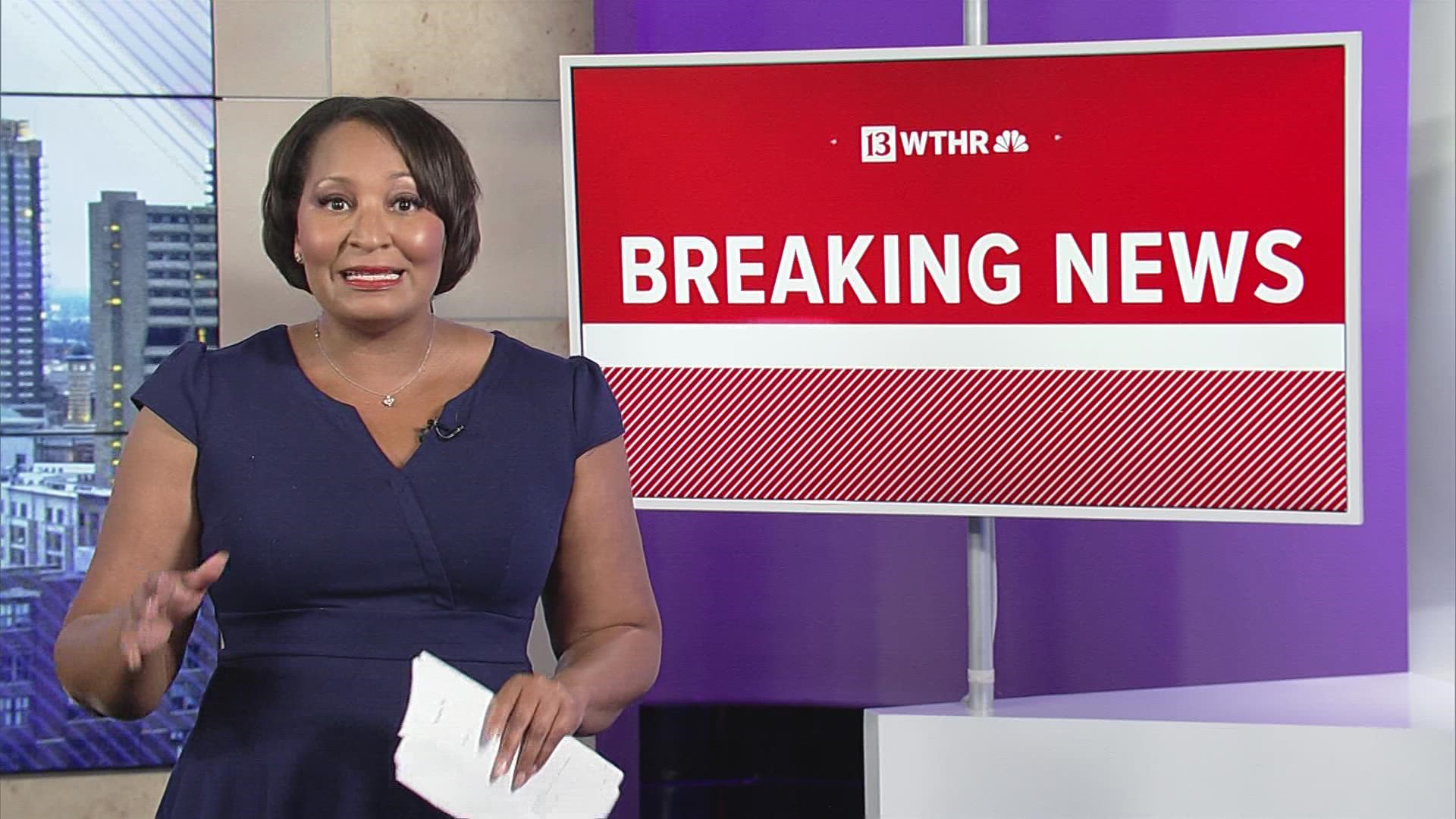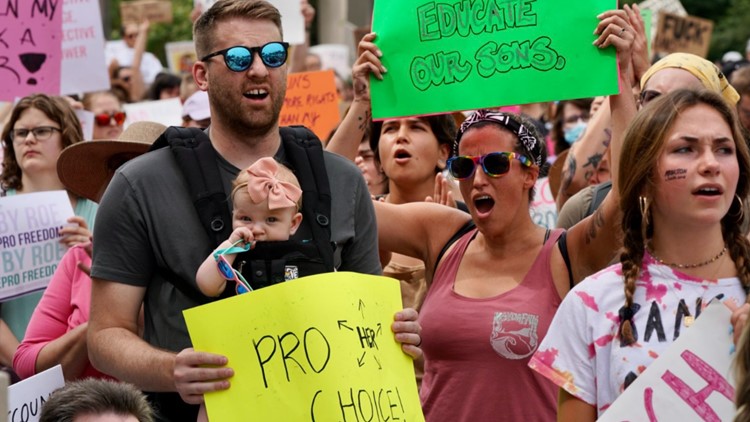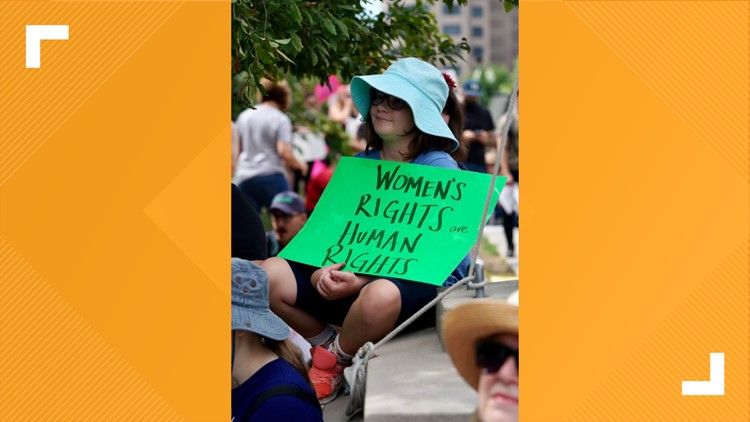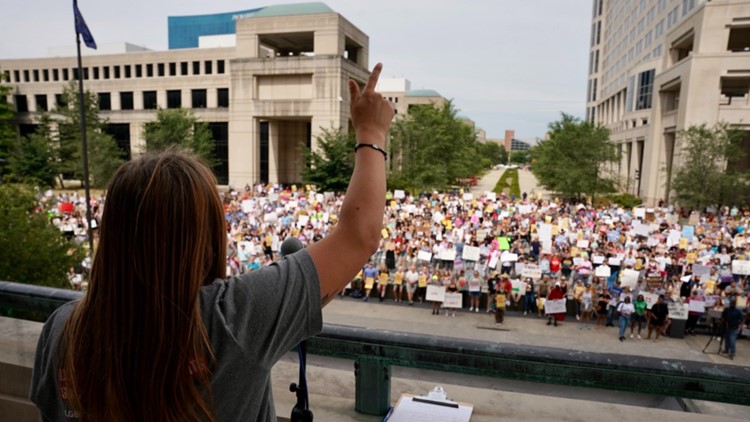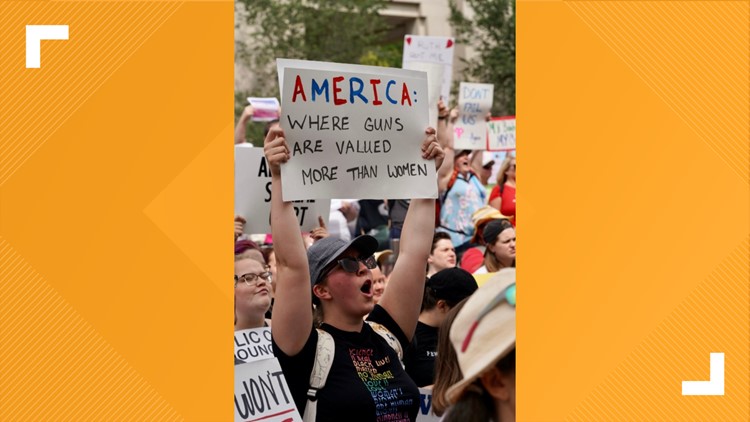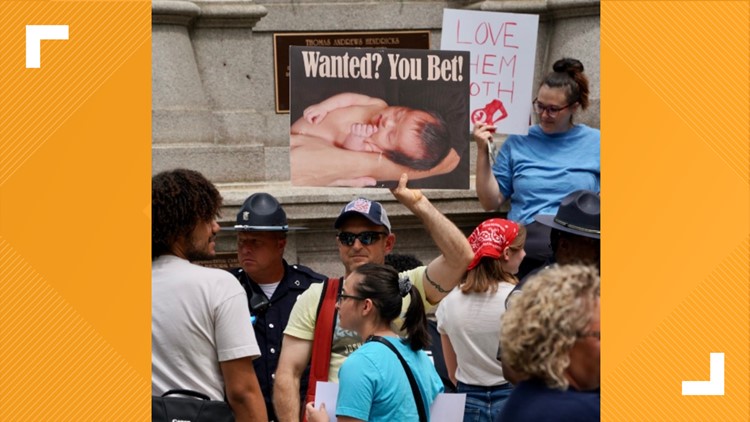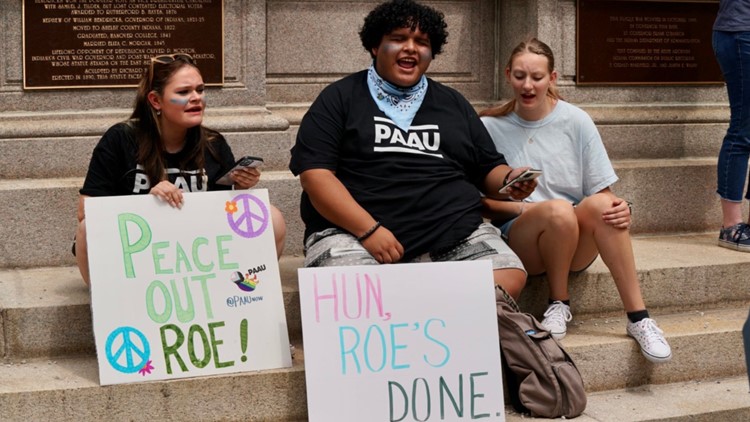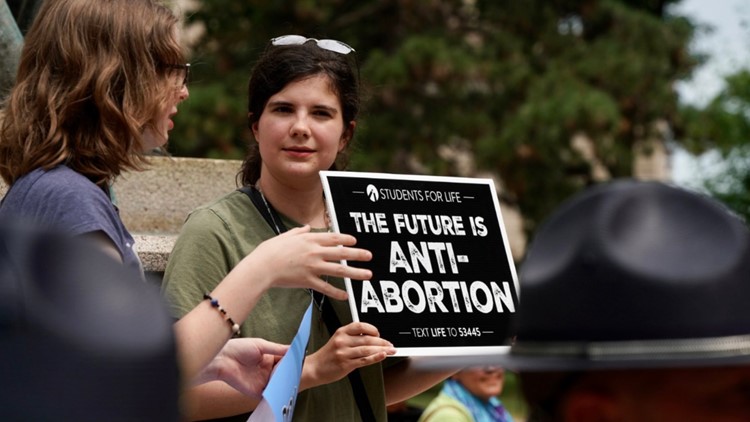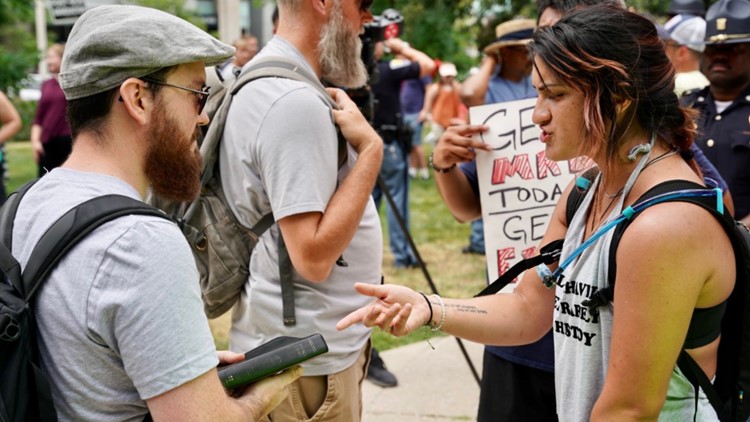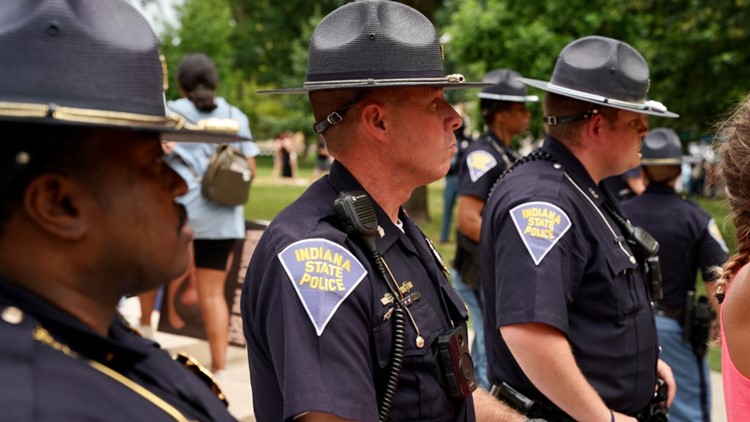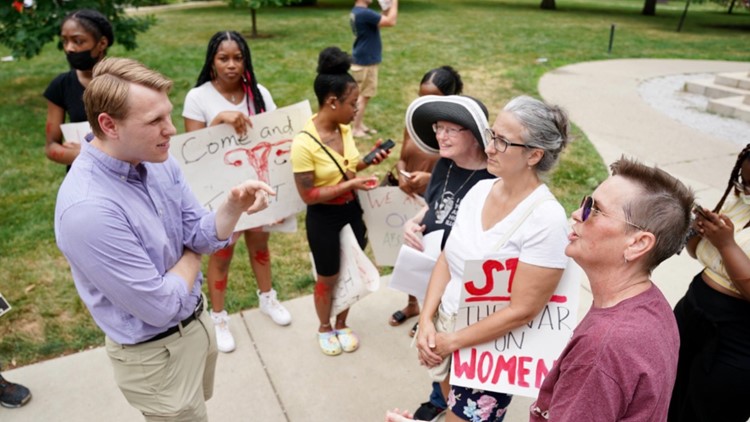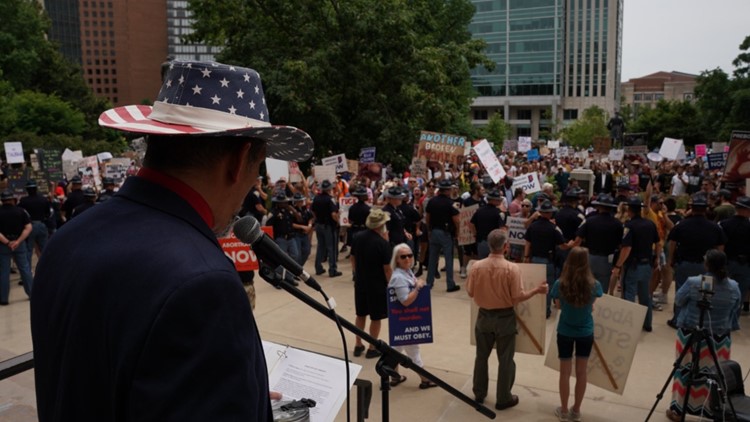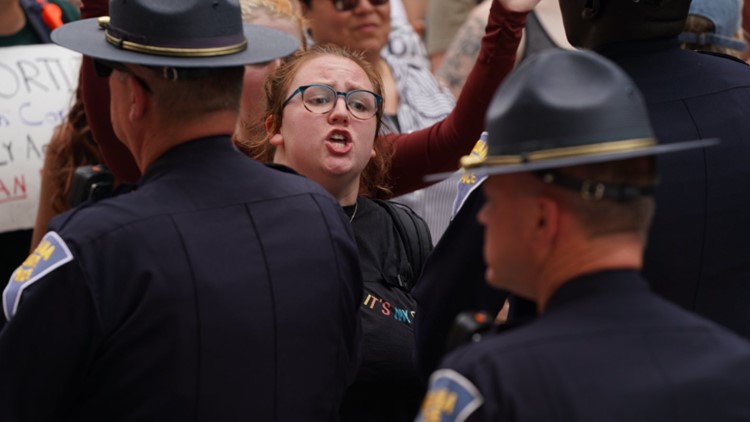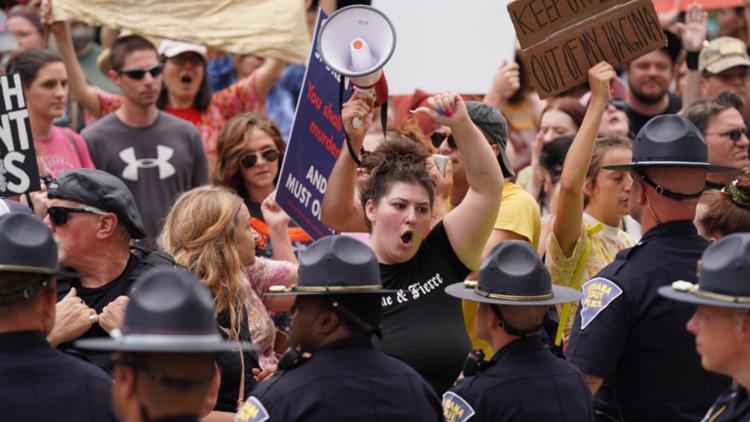INDIANAPOLIS — The Indiana Supreme Court issued an order Wednesday that prevents the state from enforcing a Republican-backed abortion ban while it considers whether it violates the state constitution.
The court said in the order that it was taking over appeals of a judge's decision last month that blocked the law a week after it took effect. It denied a request from the state attorney general's office to set aside the preliminary injunction, setting a hearing on the lawsuit filed by abortion clinic operators for Jan. 12.
Owen County Judge Kelsey Hanlon blocked the law from being enforced, writing that "there is reasonable likelihood that this significant restriction of personal autonomy offends the liberty guarantees of the Indiana Constitution" and that the clinics will prevail in the lawsuit.
The ban was approved by the state's Republican-dominated Legislature on Aug. 5 and signed by GOP Gov. Eric Holcomb. That made Indiana the first state to enact tighter abortion restrictions after the U.S. Supreme Court eliminated federal abortion protections by overturning Roe v. Wade in June.
The five-member Supreme Court, all of whom were appointed by Republican governors, did not explain their decision.
The American Civil Liberties Union of Indiana, which is representing the abortion clinics, filed the lawsuit Aug. 31. It argued that the ban would "prohibit the overwhelming majority of abortions in Indiana and, as such, will have a devastating and irreparable impact on the plaintiffs and, more importantly, their patients and clients."
Ken Falk, the ACLU of Indiana's legal director, pointed to the state constitution's declaration of rights, including "life, liberty and the pursuit of happiness" in arguing before the county judge that it included a right to privacy and to make decisions on whether to have children.
The state attorney general's office said the court should uphold the ban, saying arguments against it are based on a "novel, unwritten, historically unsupported right to abortion" in the state constitution.
The attorney general's office had asked the Supreme Court to take over the case, bypassing the typical intermediate step of it being considered by the state appeals court.
A spokesperson for the state attorney general's office sent this comment to 13News:
Indiana’s Constitution says nothing about abortion, and our legislature outlawed abortion before, during and after the period when our citizens adopted our Constitution. Planned Parenthood can present no textual or historical argument in support of a right to abortion, and the Indiana Supreme Court rightly concluded that it needs to resolve the issue right away.
The ACLU provided this statement Wednesday:
It is a tremendous relief to know that abortion will remain accessible and legal in Indiana while we continue to fight this ban in court. Since the reversal of Roe, Indiana has become a critical state for abortion care in the region. We hope that the Indiana Supreme Court agrees with the lower court that the Indiana Constitution ensures that Hoosiers have the right to access abortion. What matters most is that Hoosiers will continue to be able to maintain control over their own bodies, families, and futures without aggressive and dangerous interference from lawmakers.
The Indiana ban aimed to replace state laws that generally prohibited abortions after the 20th week of pregnancy and tightly restricted them after the 13th week. The ban includes exceptions allowing abortions in cases of rape and incest, before 10 weeks post-fertilization; to protect the life and physical health of the mother; and if a fetus is diagnosed with a lethal anomaly.
The question of whether the Indiana Constitution protects abortion rights is undecided.
A state appeals court decision in 2004 said privacy was a core value under the state constitution that extended to all residents, including women seeking abortions. But the Indiana Supreme Court later set aside that ruling without addressing whether the state constitution included such a right.
PHOTOS: Thousands of Hoosiers voice support, opposition of abortion ruling
Hanlon, a Republican who was first elected in 2014 as a judge in the rural southern Indiana county, wrote that Indiana's constitution "is more explicit in its affirmation of individual rights and its limitation of legislative power to intrude into personal affairs" than the U.S. Constitution.

